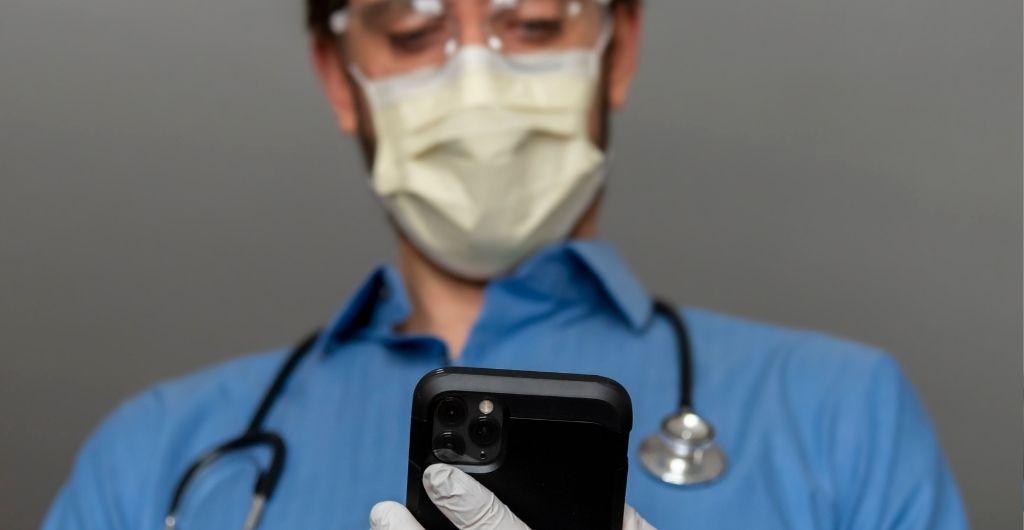
The increasing acceptance of smartphone applications as a valid tool in the healthcare industry’s toolkit has incredible promise. Mobile health, or “mHealth” apps, have the potential to genuinely revolutionise the healthcare industry by offering earlier warnings of symptoms, reducing costs and improving quality of life for patients.
mHealth apps – software programs for a mobile device designed to improve patient health outcomes – deserve, therefore, the same attention, rigour and respect that is paid to existing medical tools. Two of the most popular categories of mHealth apps are wellness and chronic disease management, and leading apps in these categories boast high user engagement, retention, and satisfaction.
Although developing a secure, user-friendly and medically valid app can be challenging, it is a task worth undertaking, as success results in significant benefits for both patients and providers.
Solving the issue of data gaps
Medical decisions in a healthcare environment are predicated upon data, but both the doctor and patient often struggle to collect all of the relevant data points and analyse them in a short, infrequent consultation. Data that goes unnoticed and unreported in a consultation could be the missing link in efforts to improve a person’s overall wellbeing. Similarly, shifting emphasis away from these consultations and into the patient’s hands can produce significant improvements to their quality of life – all people need are tools to gather and interpret the data themselves.
Fortunately, smartphones are an invaluable repository of this lifestyle data. mHealth apps can access this information and analyse it to identify unique patterns and convert them into health indicators, all without the need for significant user interaction. They also benefit from access to “continuous” data, whereas healthcare professionals are unable to track indicators outside of a medical environment.
Repeating patterns identified by mHealth apps can provide strong indicators of a person’s health, which can be linked back to lifestyle choices that could be altered to improve outcomes and quality of life. This data is not trapped within the app, however, as it can easily be shared with GPs to offer them behavioural and physiological information without taking up valuable consultation time.
The significance of mHealth apps
With implementations ranging from fitness trackers to virtual nurses and diabetes monitoring apps, mHealth apps realise the long-discussed concept of individualised medicine, enabling the individual to manage their lifestyle holistically.
The continuous influx of individual data has the potential to shift medical attention further from treatment towards prevention. For instance, by alerting an individual to early signs of an underlying illness, these apps can enable them to make informed decisions to prevent the condition worsening and, potentially, obviate the need for emergency intervention. This continuous monitoring, enabled by mHealth apps, means that patients can better manage their lifestyle and experience a higher quality of life.
As chronic diseases become one of the greatest burdens on global health, disease management apps are increasing in popularity. From asthma to diabetes, such apps can help users manage their symptoms, log vital metrics, and track drug intake. These apps are particularly popular for conditions that are easily influenced by lifestyle and behavioural choices which are otherwise hard to correlate. Quin is an example of one such app, specifically targeted at individuals with type 1 diabetes.
Access to a rich pool of data
Studies have shown that behavioural factors play a major role as precursors to chronic diseases or extreme fluctuations in health. However, doctors may struggle to identify these in a brief consultation – particularly as patients may not know what is relevant to disclose. mHealth apps don’t face this same limitation.
By collecting information available on an individuals’ phone, such as movement, sleep, diet, location, menstruation cycle, and more, these apps can recommend lifestyle information that an individual may not otherwise have identified so that they can raise it with their GP.
Additionally, due to the interconnected ecosystem, individual apps do not have to collect all of this data. Rather, by integrating with APIs, such as Apple’s HealthKit, apps can – with user permission – access other data stored in other apps and on the phone itself. For instance, a calorie counting app that integrates with the phone’s healthcare software can lend its data to an insulin tracking app, saving the user from entering the same data multiple times.
Further, mHealth apps can also integrate with personal medical devices that use the phone as a hub. For people with type 1 diabetes, for instance, apps can integrate with their continuous glucose monitors (CGMs). Advanced apps like Quin can combine lifestyle information stored on the phone with the continuous blood glucose data to not only provide the user with a full picture of their own data, but to intelligently provide individualised insulin dosing recommendations.
Individualised medicine and independent management
Everyone is different, but pragmatism demands relative uniformity of diagnosis and treatment when healthcare is provided at scale. In short, it is infeasible for everybody to have a personal doctor who adjusts their regimen to optimally suit their needs. However, modern technology can step in to act as a virtual ‘personal doctor,’ offering guidance to suit a patient’s individual lifestyles, behaviours, and preferences.
Apps such as Quin represent the beginning of this revolution, as they address people with a specific condition. People with type 1 diabetes regularly have to calculate how many carbohydrates they are going to eat and how much insulin they will need to process them. Quin uses available data to tailor insulin-dosage recommendations to the individual based upon their prior experiences. As such, the app redefines diabetes management by holistically accounting for the behavioural and physiological factors at play in the daily life of a person with diabetes.
By empowering people to manage their conditions independently, when they’re away from their doctors, mHealth apps help them achieve better health outcomes and a higher quality of life. Additionally, these apps contribute to users’ sense of control over their bodies and allow them to make immediate, informed decisions for themselves, potentially improving their mental health. On a larger scale, widespread adoption of mHealth apps may also reduce the necessity of in-patient treatment.
Technology for a healthier future
Technology has already revolutionised our daily routines, and the more effectively we can integrate it with healthcare, the more we can improve people’s lives. mHealth app development is already transforming the future of medical research and routine clinical care, and with the increasing use of smart devices we can expect patients and providers to increase their reliance on health apps to facilitate diagnosis, treatment, and care. It is not an overstatement to say that the download button can genuinely improve and even save lives and, at sufficient scale, reshape global health practices.
By Cyndi Williams, CEO and Founder at Quin












